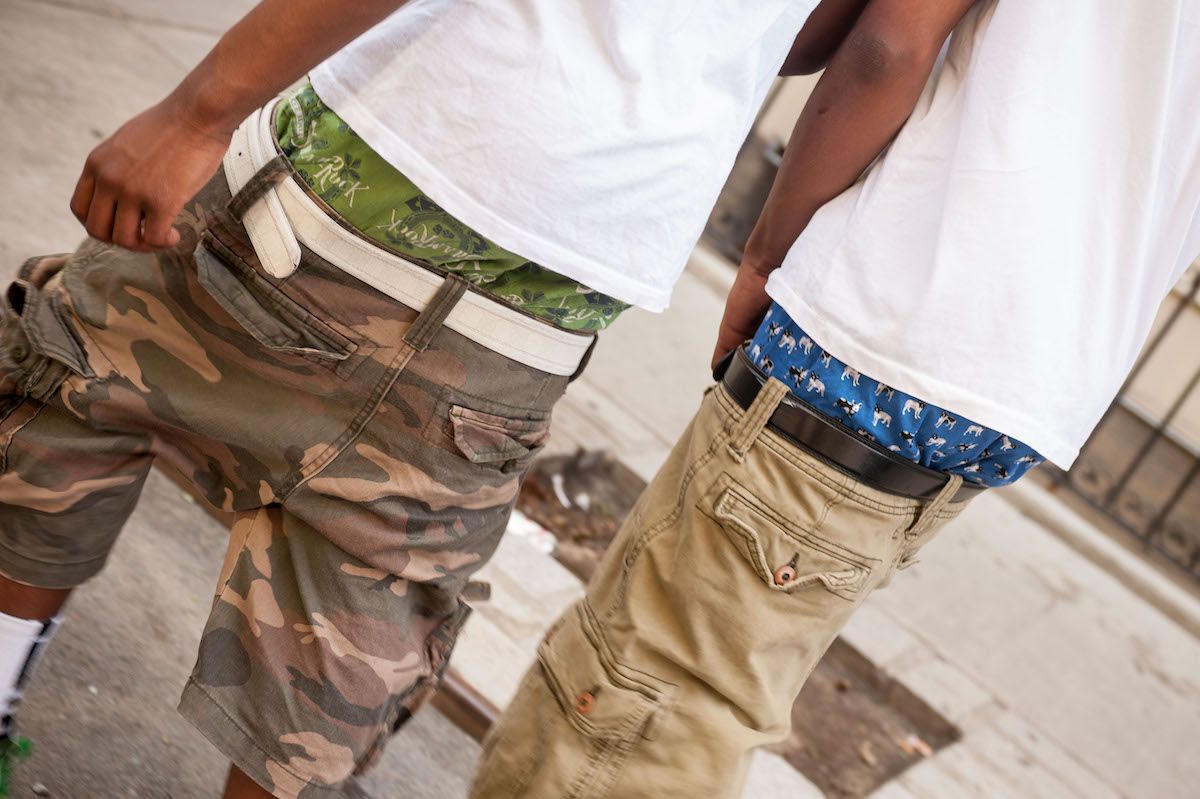Since 2007, it’s been illegal for men and women to wear baggy pants that exposed the top of their undergarments in Opa-locka, Florida. But now, the city has repealed the legislation against saggy pants, which has been accused of targeting Black communities, the Associated Press reports. On Sept. 9, the Opa-locka City Commission voted 4-1 to repeal both the original 2007 saggy pants ban as well as a 2013 ordinance that said, in addition to men, women could receive citations for wearing loose-fitting pants that hung below their underwear. According to the Miami Herald, the vote will need to be approved again at an additional commission meeting before it’s official. “I was never in support of it, even as a resident,” Opa-locka Vice Mayor Chris Davis, who sponsored the repeal, told the Miami Herald. “I felt it disproportionately affected a certain segment of our population, which is young, African-American men.” In an interview with CNN, Davis added: “You can’t pass a law to target any segment of a population. It has to be equitable. … When you pass laws like that, they can seem predatory if not carefully implemented.” When the ordinance was first passed, the ACLU of Florida called it a “ridiculous waste of public resources” and suggested it would “impose overly harsh penalties for victimless behavior,” disproportionately affecting young Black people. While the city of Opa-locka did not respond to the Miami Herald’s request regarding how many citations were given out, city officials said they had issued 72 tickets (at $500 each or 25 hours of community service) in 2013 by November of that year, when the ordinance was expanded to include women.ae0fcc31ae342fd3a1346ebb1f342fcb Thirteen years later, on Sept. 10, the ACLU of Florida applauded the repeal. “Criminalizing the way someone wears their clothing serves no one. Similar ordinances have been pursued across the country and have only yielded heightened racial profiling by police and increased racial disparities in the criminal justice system,” the ACLU told the Herald in a statement. “Our local leaders should be looking at ways to end discriminatory practices, not embolden them.” The one vote against the repeal came from Commissioner Alvin Burke, who argued that the law was intended “to uplift our young Black men,” not target them. “As of today, we still have our young men walking around with saggy, baggy pants,” Burke said. “If y’all see fit to do away with it and just continue to let our young Black men walk around into our buildings like that … then so be it.” The issue of sagging pants has been around for decades. In 2008, then Democratic presidential candidate Barack Obama was asked about banning sagging pants during an interview with MTV. “Do feel like people should be penalized?” VJ Sway asked. “Here is my attitude: I think people passing a law against people wearing sagging pants is a waste of time,” Obama responded. “We should be focused on creating jobs, improving our schools, health care, dealing with the war in Iraq, and anybody, any public official, that is worrying about sagging pants probably needs to spend some time focusing on real problems out there.” However, he added, “Having said that, brothers should pull up their pants. … There are some issues that we face, that you don’t have to pass a law, but that doesn’t mean folks can’t have some sense and some respect for other people and, you know, some people might not want to see your underwear—I’m one of them.” RELATED: For more up-to-date information, sign up for our daily newsletter. Opa-locka isn’t the only Floridian city that has banned saggy pants. Ocala passed a similar ordinance in 2014, but repealed it months later after the NAACP threatened legal action. Davis told the Miami Hearld that the repeal of Opa-locka’s saggy pants ban comes at a meaningful time as the U.S. experiences a reckoning with systemic racism. “What better climate to do it in than the one that’s going on around the country centered on police reform,” Davis told the Miami Hearld. “Just looking at ways that we can make our public services more equitable.” And for more on the insidious history of racism in the States, check out 7 Common Phrases That You Didn’t Know Have Racist Origins.
